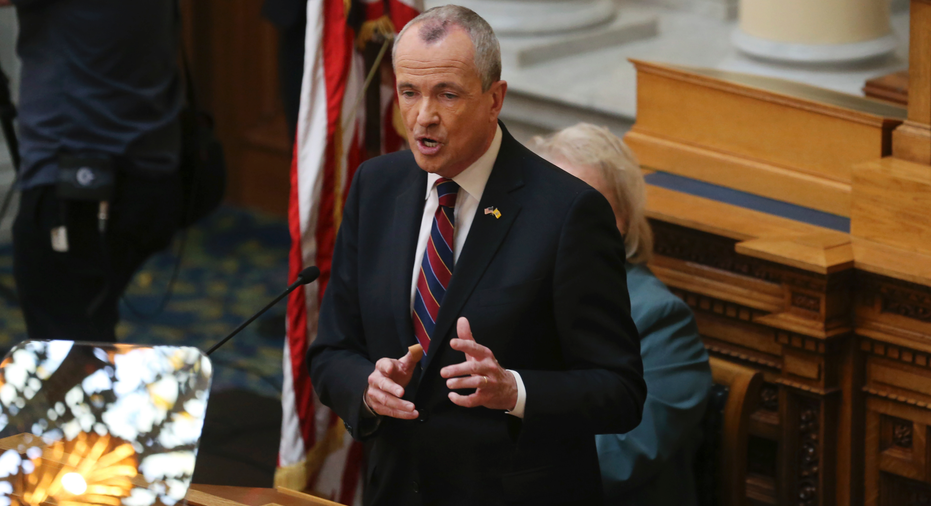New Jersey governor wants higher taxes, money for schools

TRENTON, N.J. – Gov. Phil Murphy on Tuesday proposed raising and expanding the state sales tax, hiking income taxes on the wealthy and legalizing recreational marijuana under a budget plan he said represents a sharp break from the way the state was run the past eight years under a Republican administration.
Murphy, a Democrat, also said he wants to increase the state's total contributions to public education by about 8 percent, or $1 billion, ramping up direct aid to schools by about $341 million and boosting the state's subsidy to New Jersey Transit by $242 million.
In his first budget address to the Democrat-led Legislature, Murphy recommended raising the sales tax from 6.625 percent to 7 percent, undoing a cut that was successfully sought by his predecessor, Republican Gov. Chris Christie. Murphy also proposed extending the tax to new areas, including ride-hailing services and accommodations such as Airbnb.
Following through on a campaign promise, he proposed raising the tax on incomes over $1 million from the top bracket of 8.97 percent to 10.75 percent.
His proposed spending plan of $37.4 billion is roughly 5 percent higher than Christie's final-year proposal.
"This budget meets the standards by which we will build a stronger and fairer New Jersey that works for all of our residents," Murphy said. "It will responsibly invest in our future to drive our economic growth and resurgence. It will ensure we meet our obligations fairly and honestly."
Democrats offered few details in their reactions. Assembly Democratic leaders said in a statement that they "promise" to review the proposals. Senate Democratic leaders added that some of the proposals are "appealing" but that they'll require "thorough review and consideration."
Republicans were much more critical. Senate Minority Leader Tom Kean Jr. said his reading of the budget shows $2.7 billion in new spending.
"That's simply irresponsible," he said. "It represents a very bad value for taxpayers."
Murphy's budget would raise taxes by nearly $1.6 billion in one of the country's highest-taxed states while also increasing spending on education and transit.
The state's pension contribution would rise from $2.5 billion to $3.2 billion.
Murphy, a wealthy former Goldman Sachs executive who served as President Barack Obama's ambassador to Germany but had never held office before, said he wants to see a recreational cannabis program in place by January.
"Legalization will allow us to reinvest directly in our communities — especially the urban neighborhoods hardest hit by the misguided War on Drugs," Murphy said.
The increase in the sales tax would generate at least a half-billion dollars. Christie had successfully pushed for lowering the sales tax under a plan in 2016 that also hiked the gas tax by about 25 cents, from 14 cents a gallon to 37.5 cents a gallon.
The hike in the millionaires' tax would generate about $750 million. Democratic Senate President Steve Sweeney has said the increase would be approved only as a "last resort."
Murphy's plan also calls for closing what he calls a corporate tax loophole, generating about $100 million. And he is banking on about $110 million as a result of what he called technical changes to the corporate business tax.
He's also calling for raising how much state residents can deduct in local taxes on income tax returns from $10,000 to $15,000, a reaction to the new limitation on deductions under the 2017 federal tax law. The administration did not have any estimates on how much that could save New Jersey taxpayers.
The governor also wants to increase the earned-income tax credit, which helps lower-income residents, and create a child care tax credit.



















